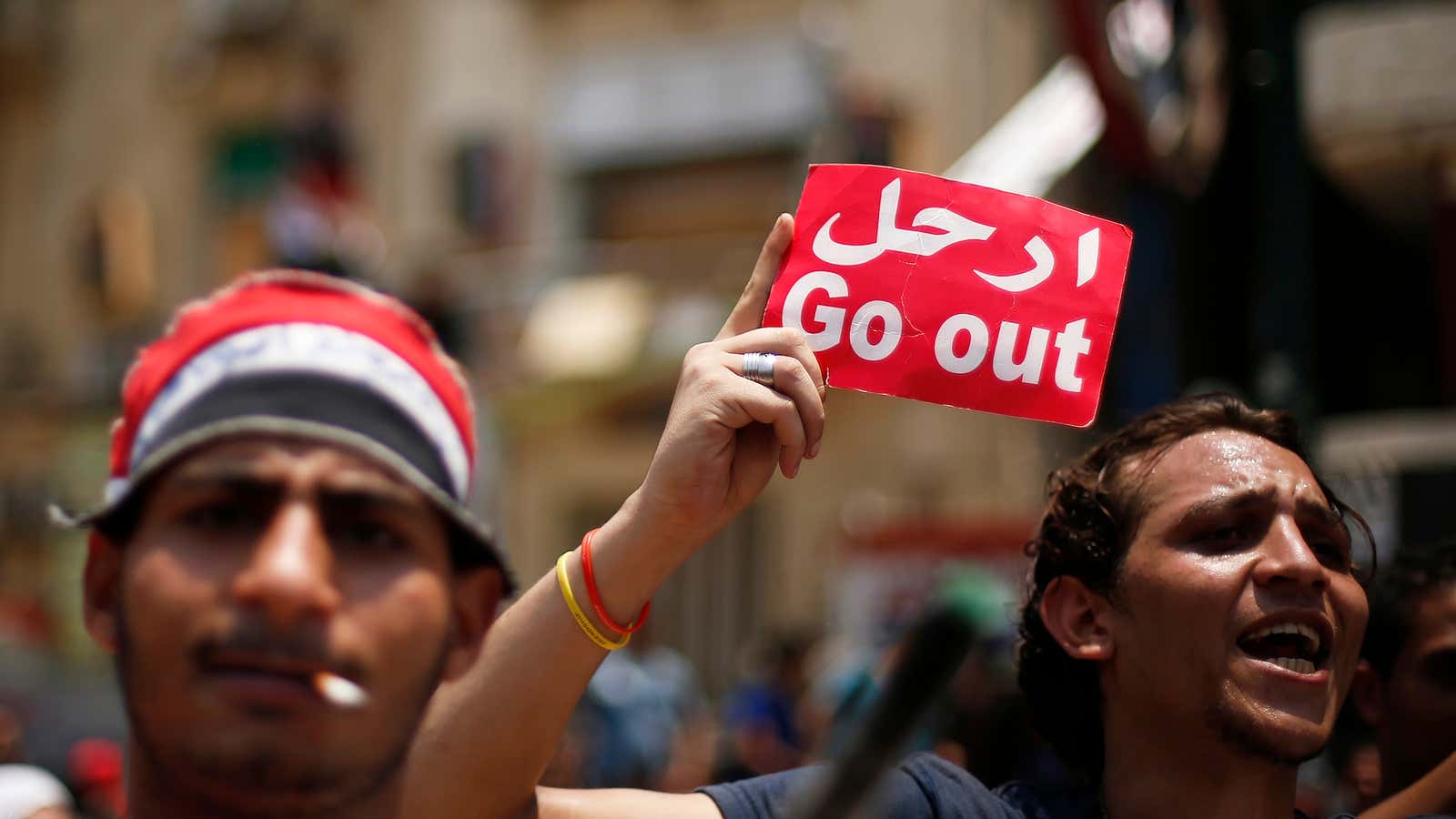At first glance, people power looks to be alive and well in Egypt. Just two-and-a-half years after toppling their dictator, Hosni Mubarak, Egyptians were out in force again yesterday to protest the heavy-handed rule and economic stagnation under his successor, president Mohamed Morsi. On Twitter the #June30 hashtag—the anniversary of Morsi’s inauguration—crackles with energy and hope, an echo of the #Jan25 hashtag around which the opposition rallied against Mubarak. And today the armed forces gave Morsi an ultimatum: Respond to the protestors’ demands within 48 hours, or the armed forces would impose their “own road map for the future.”
And that’s the problem: A Morsi ouster might not be another victory for the people, but for the military.
The Supreme Command of the Armed Forces (SCAF) had long been loyal to Mubarak, but it turned quickly on him when the generals saw that his power was ebbing. After running the country for a year, they tried to impose their own candidate in last year’s presidential election. When it became clear that popular support for Morsi and his Muslim Brotherhood was overwhelming, the SCAF allowed him to win but passed a series of sweeping measures just before he took office to consolidate its own power and weaken the office of the president. Morsi’s presidency since then has been a power struggle on two fronts, fighting the SCAF with one hand and repressing liberal, anti-Islamist forces with the other.
These two enemies of Morsi may now have found common cause temporarily. And some liberals, like the journalist Mona Eltahawy, believe this uprising will be the real thing—the event that finally tips the balance of power over to the forces of democracy.
But there’s another interpretation: The pro-democracy activists are serving as the army’s tool. Once it is back in power, the SCAF will be in no hurry to liberalize; indeed, it is likely to only step up the repression against the Muslim Brotherhood, which remains popular with a sizable chunk of the people. What’s more, making the ouster of presidents this easy sets a bad precedent, as Shadi Hamid of the Brookings Institution wrote last week in the Atlantic (Quartz’s sister publication):
If one looks at [the rebel movement’s] justifications for seeking Morsi’s overthrow, the entire list consists of problems that will almost certainly plague his successor. They have little to do with a flawed transition process and a rushed constitution that ran roughshod over opposition objections and everything to do with performance. […] Legitimacy cannot depend solely or even primarily on effectiveness or competence. If it did, revolution could be justified anywhere at any time, including in at least several European democracies.
Egypt is often portrayed as being caught in an unstable equilibrium of three forces: the Islamists, the liberal democrats, and the leftovers of the Mubarak regime. But in reality it’s more of a battle between the old regime and the Muslim Brotherhood, with the liberal democrats caught in the middle—unwitting pawns of either side, energized but fractious, and with no power base of their own. It’s a solemn reminder that it takes a lot more than a democratic revolution to make a democracy.
